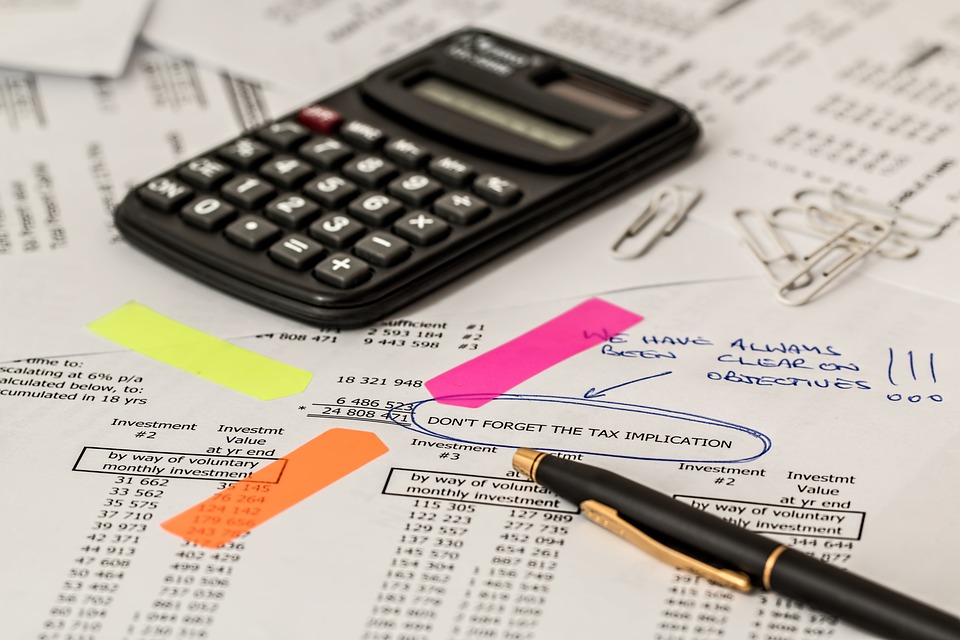
Student Loan Delinquency: Understanding Your Options

Life after graduation can be overwhelming, especially when student loans start coming due. Unfortunately, many graduates find themselves struggling to keep up with their payments, leading to delinquency. If you’re in this situation, it’s important to know that you’re not alone—and there are steps you can take to get back on track. Let’s talk about what student loan delinquency is, why it matters, and the options you have to manage it.
What Is Student Loan Delinquency?
Student loan delinquency happens when you miss a payment on your student loan. Even if you’re just one day late, your loan is technically considered delinquent. As time goes on, the delinquency can escalate, leading to more serious consequences. After 90 days, your delinquent status is reported to the credit bureaus, which can negatively impact your credit score. If your loan remains delinquent for 270 days (about nine months), it can go into default, which brings even more severe consequences, such as wage garnishment, loss of eligibility for additional student aid, and legal action.
Why Delinquency Matters
Delinquency is more than just a missed payment—it’s a signal that your financial situation might be in trouble. The longer your loan remains delinquent, the harder it can be to recover, both financially and emotionally. A lower credit score can make it difficult to get approved for future loans, credit cards, or even housing. Plus, the stress of knowing you’re behind on payments can take a toll on your mental health. But the good news is that there are steps you can take to address the situation before it gets worse.
Understanding Your Options
If you’re facing student loan delinquency, it’s crucial to act quickly and explore your options. Here are some steps you can take:
1. Reach Out to Your Loan Servicer
The first thing you should do if you’re struggling to make payments is contact your loan servicer. They can provide information about your current status and offer solutions based on your specific situation. Many people avoid reaching out because they’re embarrassed or afraid, but your loan servicer is there to help you. The sooner you make contact, the more options you’ll have.
2. Explore Deferment or Forbearance
If you’re experiencing a temporary financial hardship, you might qualify for deferment or forbearance, which allows you to pause your payments for a period of time. Deferment is typically available for situations like unemployment or enrollment in school, while forbearance can be granted for other types of financial difficulties. Keep in mind that interest may continue to accrue during these periods, so it’s important to understand how this will impact your total loan balance.
3. Consider Income-Driven Repayment Plans
If your financial struggles are more long-term, an Income-Driven Repayment (IDR) plan might be a better option. These plans adjust your monthly payments based on your income and family size, potentially lowering your payments to a more manageable level. If you’re already delinquent, switching to an IDR plan could help you get current on your payments and avoid default.
4. Loan Consolidation
Another option for managing delinquency is loan consolidation. This process combines your federal student loans into a single loan with a fixed interest rate, based on the average of your existing rates. While consolidation won’t lower your interest rate, it can simplify your payments by giving you one monthly bill. Additionally, consolidating your loans can bring your account out of delinquency, provided you agree to an income-driven repayment plan or another payment arrangement.
5. Refinancing
For some borrowers, refinancing might be a viable option. Refinancing involves taking out a new loan with a private lender to pay off your existing federal or private student loans. If you qualify for a lower interest rate, this could reduce your monthly payments and save you money over time. However, refinancing federal loans with a private lender means losing access to federal protections like deferment, forbearance, and income-driven repayment plans, so it’s important to weigh the pros and cons carefully.
What If You’ve Already Defaulted?
If your loan has already gone into default, it’s not the end of the road. There are still ways to recover, such as loan rehabilitation or consolidation. Loan rehabilitation involves making a series of on-time payments to get your loan out of default and remove the default from your credit report. While it takes time and commitment, rehabilitation can be a powerful way to rebuild your financial future.
Below are some of the most frequently asked questions related to student loan delinquency.
1. How can I avoid student loan delinquency?
- Answer: To avoid delinquency, make sure you’re aware of your payment due dates and set up automatic payments if possible. If you’re struggling to make payments, contact your loan servicer immediately to discuss options like deferment, forbearance, or an income-driven repayment plan.
2. What is the difference between delinquency and default?
- Answer: Delinquency begins the first day you miss a payment. Default occurs after your loan has been delinquent for a specific period (typically 270 days for federal loans), leading to more severe consequences like wage garnishment and legal action.
3. Will delinquency affect my credit score?
- Answer: Yes, if your loan is delinquent for 90 days or more, it will be reported to the credit bureaus, which can negatively impact your credit score. This can affect your ability to borrow money, rent an apartment, or even get certain jobs.
4. Can I get out of student loan delinquency?
- Answer: Yes, you can get out of delinquency by making your missed payments or working with your loan servicer to create a repayment plan. Options include paying off the delinquent amount, entering an income-driven repayment plan, or consolidating your loans.
5. What should I do if I can’t afford my monthly payments?
- Answer: If you’re struggling to afford your payments, contact your loan servicer as soon as possible. They can help you explore options such as income-driven repayment plans, deferment, forbearance, or loan consolidation.
6. Can I delay payments without going delinquent?
- Answer: Yes, you can delay payments through deferment or forbearance if you qualify. These options allow you to temporarily pause your payments without going delinquent, but interest may continue to accrue, depending on the type of loan.
7. What are the consequences of defaulting on a student loan?
- Answer: Defaulting on a student loan can lead to severe consequences, including wage garnishment, loss of eligibility for additional student aid, damage to your credit score, and potential legal action. The entire loan balance may also become due immediately.
8. Can I still qualify for loan forgiveness if my loan is delinquent?
- Answer: If your loan is delinquent, you may still qualify for loan forgiveness programs, but you must bring your loan current first. Entering an income-driven repayment plan or consolidating your loans can help you regain eligibility for forgiveness.
9. What should I do if I’ve already defaulted on my student loan?
- Answer: If you’ve defaulted, you have options like loan rehabilitation or loan consolidation to get back on track. Rehabilitation involves making a series of on-time payments to remove the default status from your credit report, while consolidation can bring your loan out of default and make it easier to manage your payments.
10. How can I prevent my loan from going into default?
- Answer: To prevent default, stay proactive. Set up automatic payments, keep track of due dates, and reach out to your loan servicer if you’re having trouble making payments. They can help you explore options to reduce or temporarily pause your payments.
Summary
Dealing with student loan delinquency can be stressful and overwhelming, but it’s important to remember that you have options. The key is to act quickly and proactively. Whether you explore deferment, an income-driven repayment plan, or another solution, taking steps to address your delinquency now can help you avoid the more serious consequences of default. You’re not alone in this journey, and by understanding your options and reaching out for help, you can take control of your financial future.


















